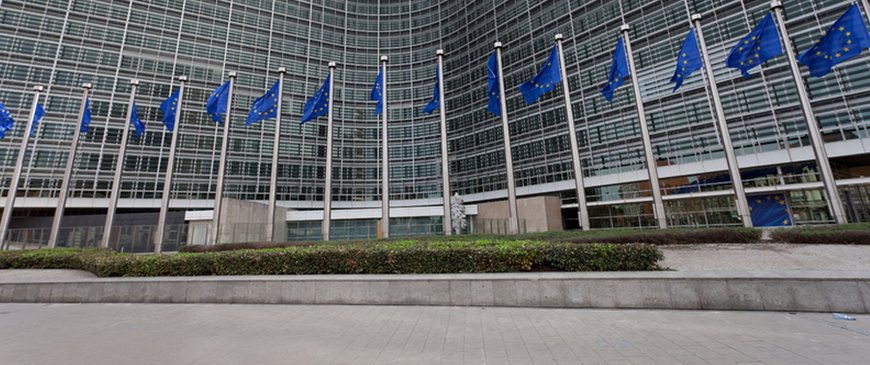
With Putin's invasion, the EU has a golden opportunity to reinforce the rule of law to member-states
On 16 February 2022, roughly a week before Russia invaded Ukraine, the attention of the ‘EU bubble’ was elsewhere – in Luxembourg, to be precise. There, the European Court of Justice was delivering a much-awaited ruling on the link between EU funds and the protection of the rule of law in Europe.
The rule of law is one of the fundamental values of the European Union, and a prerequisite for the protection of all the other values of the Union, including for fundamental rights and democracy. The core of the rule of law is effective judicial protection, which requires the independence, quality and efficiency of national justice systems, but also covers anti-corruption frameworks, media freedom, media pluralism and general governmental checks and balances.
Problems with EU countries not following the rule of law are not new. Hungary’s Viktor Orbán has been toying with the idea of “illiberal democracy” since 2014. The EU’s stand-off about the rule of law issue began in earnest four years ago; in December 2017, the Commission launched a disciplinary proceeding against Poland under Article 7 of the Lisbon treaty for breaching EU values. Article 7 is often called the ‘nuclear option’. It is the EU’s punishment clause, allowing it to discipline member states when absolutely necessary. Article 7 proceedings can end with the suspension of the offending state’s voting rights in the Council of Ministers. In October 2018, the European Parliament initiated proceedings against Hungary for the same reason. However, neither of the two disciplinary actions has got very far: they require unanimous agreement in the Council, minus the offending state. Even if 25 states agreed to sanction Poland or Hungary, one of that pair would still be able to block action against the other.
The recovery fund
2021 may have been the bumpiest year yet for the rule of law in Europe. In December 2020, the EU passed a law (the ‘conditionality mechanism’, in EU jargon) that would stop payments from the EU’s budget and recovery fund to countries that do not respect the rule of law. The Commission has not triggered this mechanism yet. That is because to overcome Warsaw and Budapest’s threat to veto the bloc’s recovery fund, EU governments promised them that the law would not be used until the European Court of Justice had had the time to review it. Poland and Hungary launched a legal proceeding before the European Court of Justice in March 2021, asking the court to invalidate the conditionality mechanism as it went against EU law.
That was what the Court was deciding on that bleak mid-February morning. To no-one’s surprise, the Luxembourg judges declared that the conditionality mechanism was perfectly legal, and that the European Commission was free to trigger it at any point. And that is where things stood when Putin decided to invade Ukraine.
Impact of the invasion of Ukraine
The war has changed many things, as wars often do. Poland and Hungary, both of which share borders with Ukraine, went from making headlines for their (mis) treatment of migrants and refugees to being rightly applauded for helping people in desperate need of fleeing Ukraine. According to the UN, as of 31 March around 4 million 3.7 million Ukrainians had fled the country. Of those, 2.3 million are currently in Poland, while Hungary is hosting some 368,000. In less than a month, Poland went from being bottom of the list of countries hosting refugees to ranking second in the world in terms of refugees per head.
Warsaw and Budapest have been championing Ukraine’s bid to join the EU, albeit with varying degrees of enthusiasm. Poland is at the forefront of those EU countries asking for a tougher approach to Russia, including tightening sanctions on the Kremlin and delivering more weapons to Ukraine.
Many think the war will also change Poland and Hungary’s belligerent behaviour towards Brussels. The risk of being invaded by one neighbour’s brings into light the importance of having friends.
A golden opportunity
Despite the gear shift for Poland and Hungary in some areas, the truth is that little has changed behind the scenes regarding the rule of law in these countries. The Polish government is still pushing people back in the border between Belarus and Poland, and it still has not asked any EU agency with powers (and money) to help with dealing with the refugees at either of its two hotspots at the Ukrainian and Belarusian border. Together with Hungary, Poland refuses to ask for help with relocating Ukrainian refugees for fear it would reopen a can of worms: both countries have opposed EU attempts to introduce refugee redistribution quotas since 2015. And of course, the Polish government has still not backtracked on its illegal judicial reform and is still not complying with EU rulings.
And yet, the Commission will likely announce the release of Poland’s (and probably Hungary’s) recovery fund in a matter of days or weeks. This has nothing to do with the actual needs of Poland as a frontline state in the war – the money and support to meet those needs comes from elsewhere and has already been pledged.
Instead, the Commission’s move to unfreeze the funds is merely a political manoeuvre to avoid cracks in European unity. But it will be a mistake. The EU has a golden opportunity to use the invasion of Ukraine to show Polish and Hungarian citizens that complying with EU’s rule of law has clear benefits. Releasing the money now would be a bad move – and one that can backfire as the war rages on.
